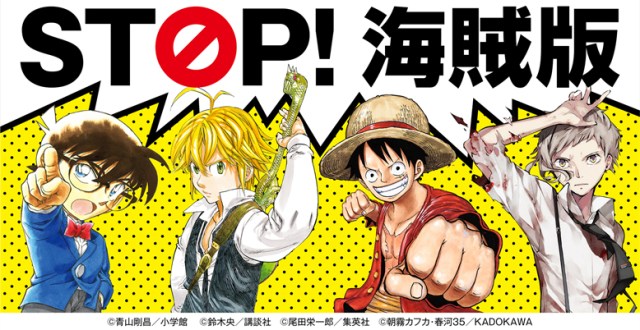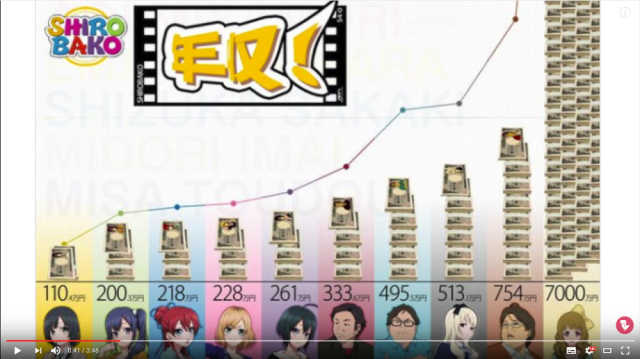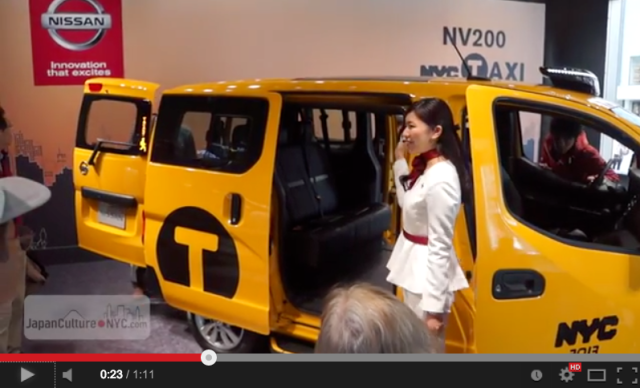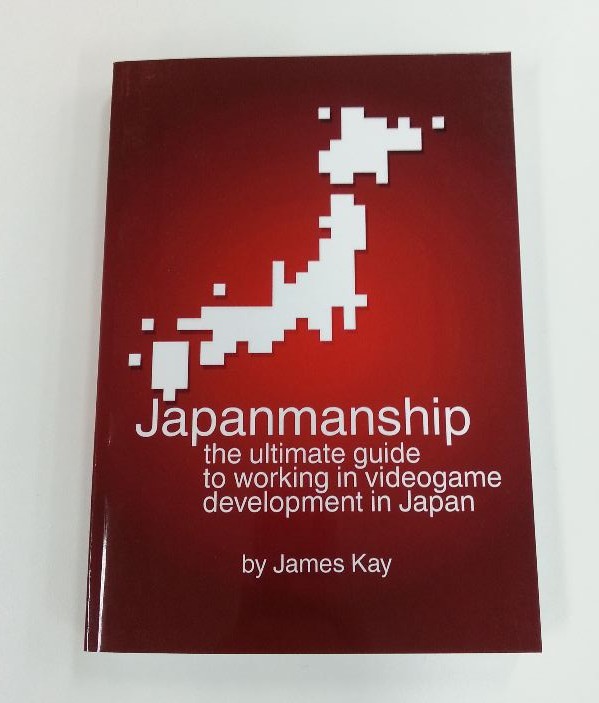Safety fears and an urge to social distance has rung a death knell for one of Japan’s most famous pastimes.
industry
These days, cosplay functions as a 40 billion yen (US$390 million) industry and has a large impact on Japan’s economy. Now, before moving on, please allow me to clarify that ‘cosplay’ to Japan does not only refer to people dressing up as anime and video game characters, but includes all manner of live action, Western, original characters, nurses, maids, and so on. Virtually any costume worn for fun is considered cosplay over here. So what kinds of special services are available to avid cosplayers in Japan? And how are cosplayers themselves making the most out of this bountiful, infinitely tolerant environment? Read More
In May 2011, Japan’s Nissan Motor Company was awarded the rights to manufacture a line of new generation yellow taxis for New York City, with the aim of replacing the myriad varieties of cabs on the city’s streets with one uniform design by 2020. Dubbed the “Taxi of Tomorrow” by the contest organisers, Nissan’s car was to become a major part of New York City life, and naturally came as a boon to the Japanese company.
Sadly, the project has stalled following a number of legal disputes and issues over accessibility, but Nissan is nevertheless exceptionally proud of its modern take on the classic yellow cab, and recently exhibited it for all to see in a temporary showroom in Tokyo’s trendy Ginza shopping district.
In recent years along with many other developing Asian nations, China has been increasing its level of industrial manufacturing as it readies itself for remarkable industrial growth. However, neglecting its environment for the sake of industry has brought with it the problem of dense smog pollution, with microscopic smog particles with a diameter of 2.5 micrometres or less having been detected in overwhelming large amounts in China’s air in recent days.
The smog is the same as that found in factory exhausts, car fumes and the like. Measured per cubic meter, at one instance the observed value of pollution in Beijing reached levels 10 times the Chinese government’s recommended safety level. If one were to go by the Wealth Health Organization (WHO)’s recommended value, the figure rises to 40 times greater than normal. When it comes to pollution, it is thought that of the asian nations undergoing remarkable growth, 70% of nations are reaching a critical level. The toxic substances that seep out into the environment cause asthma, pneumonia and even in some cases death.
Of course, those living in highly polluted areas will surely want to know how their air compares, but measuring the levels each time can prove tiresome and expensive. With this in mind, one innovative company called Clean Air Asia has stumbled upon a way determine just how polluted your air is, and has designed an interactive map based on – wait for it – nostil hair.
Dutch-British game developer James Kay found his way into the videogame industry after studying Audiovisual design at the Willem de Kooning Academy and moving to London to work at Intelligent Games and Criterion Software. He relocated to Japan in 2001 and, after picking up a wealth of experience at companies including Taito, Genki and Marvelous Entertainment, went on to co-found Score Studios, a company that has received critical acclaim and is fast becoming a big name in the industry.
Detailing the many hurdles that foreigners working in the Japanese videogame industry face, James’ book Japanmanship: the ultimate guide to working in videogame development in Japan may well prove to be an invaluable resource for those thinking of making the move to the spiritual home of videogames.
With the book coming off the presses just last December, RocketNews24 headed to Score Studios in Tokyo’s Yoyogi to meet with James and talk about his book, life in the videogame industry and which Nintendo Princess he’d rather rescue.








 Is China’s don’t-go-to-Japan warning affecting the lines at a popular Tokyo gyukatsu restaurant?
Is China’s don’t-go-to-Japan warning affecting the lines at a popular Tokyo gyukatsu restaurant? Three beautiful places to see Japan’s plum blossoms after starting your day in downtown Tokyo
Three beautiful places to see Japan’s plum blossoms after starting your day in downtown Tokyo 15 rude things not to do on trains in Japan【Survey】
15 rude things not to do on trains in Japan【Survey】 Huge Evangelion Unit-01 head appearing in lights in Japan to celebrate anime’s 30th anniversary
Huge Evangelion Unit-01 head appearing in lights in Japan to celebrate anime’s 30th anniversary New smartphone game turns car models into anime girls with model-worthy looks
New smartphone game turns car models into anime girls with model-worthy looks Does this video about an abandoned dog leave you wiping your eyes or shaking your fist?
Does this video about an abandoned dog leave you wiping your eyes or shaking your fist? How to travel from Tokyo to Kyoto on the overnight bus and not lose your sanity
How to travel from Tokyo to Kyoto on the overnight bus and not lose your sanity A spotlight on Japanese singles figure skating: Jumping into the 2026 Olympics【Pt. II】
A spotlight on Japanese singles figure skating: Jumping into the 2026 Olympics【Pt. II】 Man arrested in rural Japan on charges of leaving obscene DVDs in stores as gifts for “healthy men”
Man arrested in rural Japan on charges of leaving obscene DVDs in stores as gifts for “healthy men” Turning a crazy cheap country Japanese house into a home — Step 12: Workwear【SoraHouse】
Turning a crazy cheap country Japanese house into a home — Step 12: Workwear【SoraHouse】 Yokai are descending upon Tokyo this spring in the latest immersive art experience
Yokai are descending upon Tokyo this spring in the latest immersive art experience New Studio Ghibli stamps leave an impression on your stationery…and your heart
New Studio Ghibli stamps leave an impression on your stationery…and your heart Cherry blossom forecasts map shows Japan’s OTHER sakura season is starting right now
Cherry blossom forecasts map shows Japan’s OTHER sakura season is starting right now Japanese women sound off on their minimum height requirements for a husband【Survey】
Japanese women sound off on their minimum height requirements for a husband【Survey】 Japanese man gets drunk and falls asleep on Tokyo streets, then gets robbed by foreign national
Japanese man gets drunk and falls asleep on Tokyo streets, then gets robbed by foreign national Japan has a new bar just for people thinking about quitting their jobs, and the drinks are free
Japan has a new bar just for people thinking about quitting their jobs, and the drinks are free 420 million yen in cash-filled suitcases stolen on Tokyo streets, incidents at Haneda and Hong Kong follow
420 million yen in cash-filled suitcases stolen on Tokyo streets, incidents at Haneda and Hong Kong follow Japan’s suicides fall to lowest recorded number ever, but one demographic hits all-time high
Japan’s suicides fall to lowest recorded number ever, but one demographic hits all-time high Starbucks Japan releases new drinkware and goods for Valentine’s Day
Starbucks Japan releases new drinkware and goods for Valentine’s Day Japan releases first official sakura cherry blossom forecast for 2026
Japan releases first official sakura cherry blossom forecast for 2026 10 times to avoid traveling in Japan in 2026
10 times to avoid traveling in Japan in 2026 Archfiend Hello Kitty appears as Sanrio launches new team-up with Yu-Gi-Oh【Pics】
Archfiend Hello Kitty appears as Sanrio launches new team-up with Yu-Gi-Oh【Pics】 Starbucks Japan releases new Frappuccino and latte for Valentine’s Day
Starbucks Japan releases new Frappuccino and latte for Valentine’s Day China’s don’t-go-to-Japan warning looks to be affecting tourist crowds on Miyajima
China’s don’t-go-to-Japan warning looks to be affecting tourist crowds on Miyajima Our 52-year-old pole dancing reporter shares his tips for achieving your New Year’s exercise goal
Our 52-year-old pole dancing reporter shares his tips for achieving your New Year’s exercise goal Studio Ghibli releases new “komorebi” plush toys from Princess Mononoke and Spirited Away
Studio Ghibli releases new “komorebi” plush toys from Princess Mononoke and Spirited Away Ramen restaurant’s English menu prices are nearly double its Japanese ones, denies discriminating
Ramen restaurant’s English menu prices are nearly double its Japanese ones, denies discriminating Survey asks foreign tourists what bothered them in Japan, more than half gave same answer
Survey asks foreign tourists what bothered them in Japan, more than half gave same answer Japan’s human washing machines will go on sale to general public, demos to be held in Tokyo
Japan’s human washing machines will go on sale to general public, demos to be held in Tokyo We deeply regret going into this tunnel on our walk in the mountains of Japan
We deeply regret going into this tunnel on our walk in the mountains of Japan Studio Ghibli releases Kodama forest spirits from Princess Mononoke to light up your home
Studio Ghibli releases Kodama forest spirits from Princess Mononoke to light up your home Major Japanese hotel chain says reservations via overseas booking sites may not be valid
Major Japanese hotel chain says reservations via overseas booking sites may not be valid Put sesame oil in your coffee? Japanese maker says it’s the best way to start your day【Taste test】
Put sesame oil in your coffee? Japanese maker says it’s the best way to start your day【Taste test】 No more using real katana for tourism activities, Japan’s National Police Agency says
No more using real katana for tourism activities, Japan’s National Police Agency says Starbucks Japan reveals new sakura drinkware collection, inspired by evening cherry blossoms
Starbucks Japan reveals new sakura drinkware collection, inspired by evening cherry blossoms Updated cherry blossom forecast shows extra-long sakura season for Japan this year
Updated cherry blossom forecast shows extra-long sakura season for Japan this year Does this video about an abandoned dog leave you wiping your eyes or shaking your fist?
Does this video about an abandoned dog leave you wiping your eyes or shaking your fist? How to travel from Tokyo to Kyoto on the overnight bus and not lose your sanity
How to travel from Tokyo to Kyoto on the overnight bus and not lose your sanity A spotlight on Japanese singles figure skating: Jumping into the 2026 Olympics【Pt. II】
A spotlight on Japanese singles figure skating: Jumping into the 2026 Olympics【Pt. II】 Man arrested in rural Japan on charges of leaving obscene DVDs in stores as gifts for “healthy men”
Man arrested in rural Japan on charges of leaving obscene DVDs in stores as gifts for “healthy men” Turning a crazy cheap country Japanese house into a home — Step 12: Workwear【SoraHouse】
Turning a crazy cheap country Japanese house into a home — Step 12: Workwear【SoraHouse】 Who does a yakiniku beef bowl better: a Japanese vending machine or Yoshinoya?【Taste Test】
Who does a yakiniku beef bowl better: a Japanese vending machine or Yoshinoya?【Taste Test】 You can now visit a recreation of Evangelion’s Tokyo-3 and live there in miniature form in【Pics】
You can now visit a recreation of Evangelion’s Tokyo-3 and live there in miniature form in【Pics】 New vending machines sell products from iconic Japanese stores
New vending machines sell products from iconic Japanese stores Japanese women sound off on their minimum height requirements for a husband【Survey】
Japanese women sound off on their minimum height requirements for a husband【Survey】 Japan has abolished advance deportation notifications to foreigners’ lawyers
Japan has abolished advance deportation notifications to foreigners’ lawyers On Heels of Obama, Mickey Mouse Comes Out in Support of Gay Marriage
On Heels of Obama, Mickey Mouse Comes Out in Support of Gay Marriage Daiso opens massive new 25,392-square foot Tokyo flagship store with its two sub-brands included
Daiso opens massive new 25,392-square foot Tokyo flagship store with its two sub-brands included